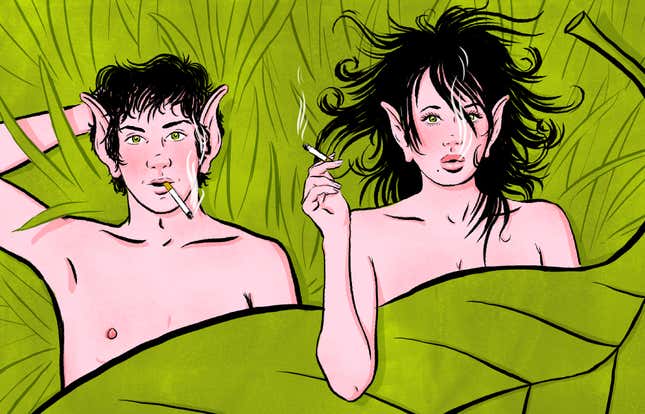Elves Fuck, and Dress Better Than You: What I Learned at Elf School in Reykjavik
In Depth

“Every time I see a local ripping off a tourist for some ‘authentic’ experience, I think, ‘Who the hell is going to fall for that?’” Dylan, my ex-roommate, remarked a few months ago over breakfast. “And then I think, ‘Oh wait. There’s you.’”
“Why?” I asked.
“You paid money to shear a sheep in New Zealand,” he replied.
“So what? That was a great experience,” I said. (It was disgusting.)
“You’re the kind of person who would pay money to see the ‘fairies’ on Ireland’s marshes,” he insisted.
“No, I’m not,” I said. “Wait, are they real fairies? Tell me more.”
“Exactly,” Dylan said.
I couldn’t resist the pull of elf school.
Elf school in Iceland costs $48. This would be a steal if you walked out of the classroom transformed into a full-fledged elf; however, nearly $50 to listen to a non-elf tell you about Iceland’s so-called “hidden people” does not seem like a great tradeoff.
-

-

-

-

-

-

-

-

-

-

-

-

-

-

-

-

-

-

-

-

-

-

-

-

-

-

-

-

-

-

-

-

-

-

-

-

-

-

-

-








































